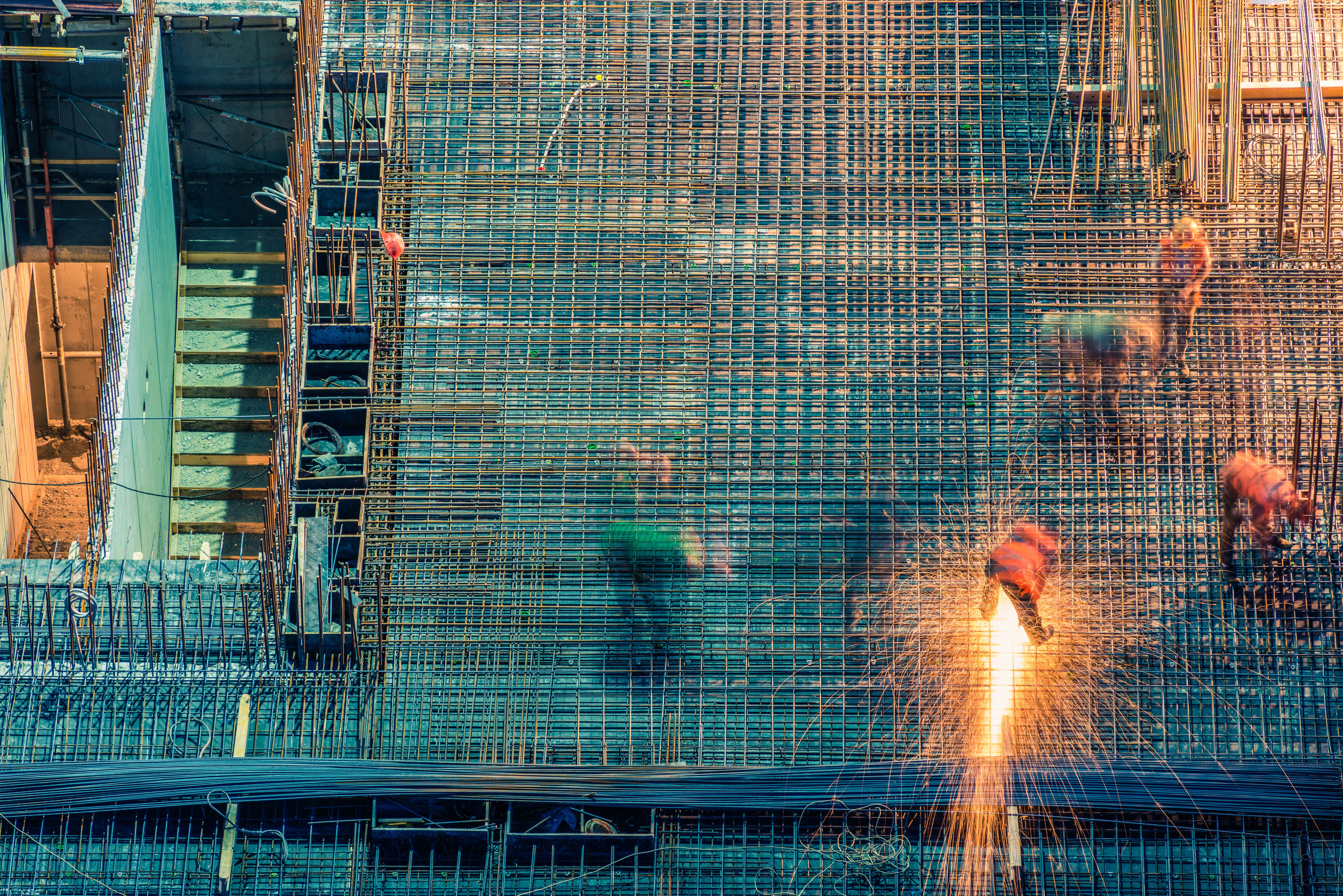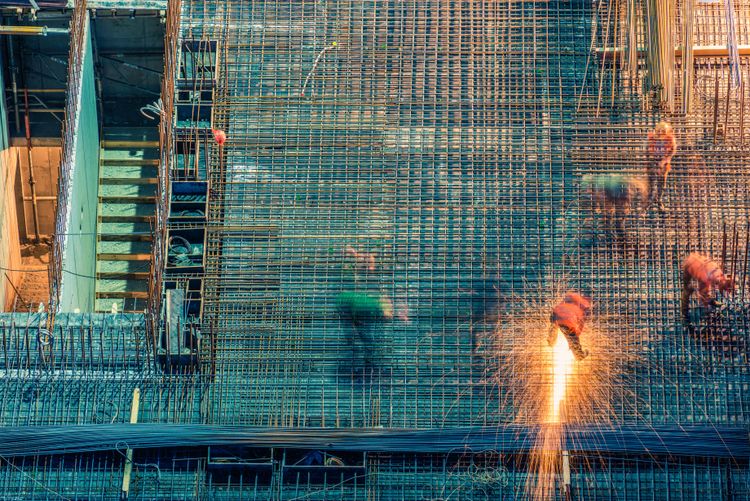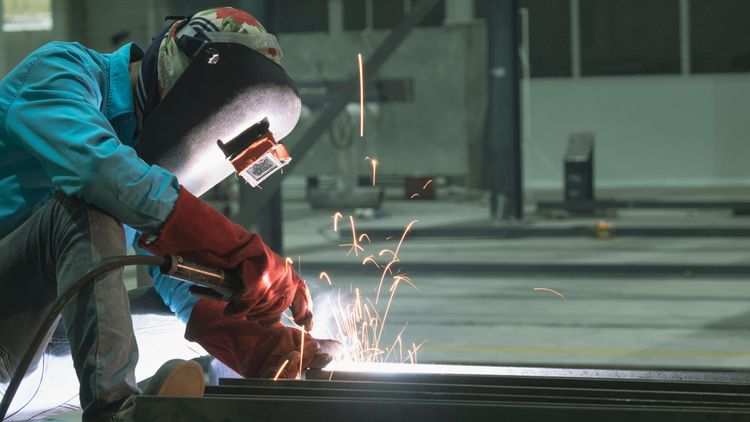The construction sector is very broad and can be divided into three major categories which differ based on the kind of structures they create.
Building Construction
Building construction is creating infrastructure for people to reside or work (residential or commercial). This sector usually employs welding in the creation of structural frameworks from metal components. Welding is used for connecting steel beams, trusses, and columns to support the walls, roof, and floor. Structural welding is not as widely used in small buildings as it is in high-rise buildings that require a lot of metal joints. Welding in building construction is also used for the fabrication of components like firewalls, stairs, and handrails.
Industrial Construction
Industrial construction enfolds all structures that are utilized industrially. These structures generally don’t stand alone but are a large part of systems of numerous systems that work together for specific purposes. These systems include manufacturing plants, refineries, mills, power generation stations, etc. Industrial construction is the most diverse across all sectors as it cuts across numerous industries. TIG welders are used for the maintenance and fabrication of structural frameworks, industrial equipment, pipelines, and support structures for large components.
Infrastructure construction
Infrastructure construction covers structures like bridges, dams, stadiums, highways, wastewater management systems, and railways. Welding application in infrastructure construction is mainly structural. That is because most of the structures in this sector are massive in terms of size and scale that completely rely on a metal framework created through welding. Certain infrastructures like bridges can be made entirely out of metal, while others like dams and water systems require a lot of pipe welding.
How to choose welding consumables
While considering the choice of consumables to use for a specific welding task, the composition of the consumables must be similar to that of the parent materials used. This will help you achieve a homogenous weld.
However, in some cases, for instance, when welding brittle cast irons, a filler with properties different from parent materials can be used. The weld thus created is a heterogeneous weld and the joint created is called a weldment.
Hence, when welding materials have different tensile strengths, the consumable chosen should match the material with the lower tensile strength, while the preheat temperature used should match what is required for the material with the higher tensile strength.
We at JSW One MSME bring to you a wide variety of high-quality, genuine welding consumable products at unbeatable prices, made available at a click of a button.
Get a quote now for all your welding requirements!






 +91 7208055523
+91 7208055523
 Help & support
Help & support
